The World Crisis — And What to Do About It: A Revolution for Thought and Action, 2021, World Scientific, Singapore.
Our Fundamental Problem: A Revolutionary Approach to Philosophy, June 2020, McGill-Queen’s University Press, Montreal.
"Our Fundamental Problem offers an original perspective on several modern philosophical debates, including those on qualia, free will, physicalism, and how to reconcile the scientific and the manifest images of the world. Above all, it is a fresh contribution to the issue of how to think about the roles of academia and education."
Agustín Vicente, Ikerbasque, Basque Foundation for Science
The Metaphysics of Science and Aim-Oriented Empiricism: A Revolution for Science and Philosophy, 2019, Springer, Cham, Switzerland.
The Metaphysics of Science and Aim-Oriented Empiricism ... is a solid and persuasive exposition of the main elements that have marked this author's career: an original, remarkable philosophical doctrine, and a wide-encompassing proposal for academic reform. The main strength of this book, from a philosophical point of view, is its cogency in presenting a well-developed, appealing, and rigorous philosophical system pertaining to the metaphysics and epistemology of science, something that not many philosophers even attempt to do these days. Damian Beanato, Principia, 23(9), 2019, pp. 529-533.
- Understanding Scientific Progress: Aim-Oriented Empiricism, Paragon House, 2017.
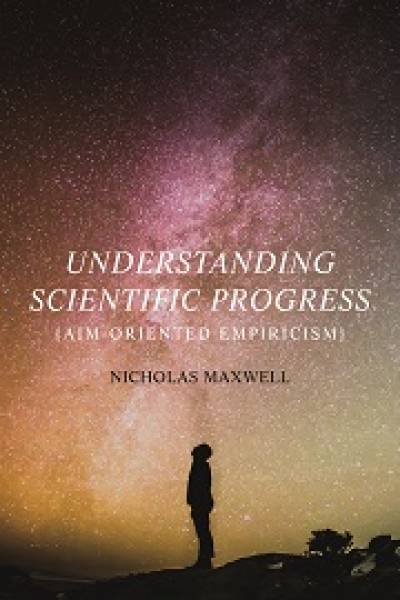
- "Understanding Scientific Progress constitutes a potentially enormous and revolutionary advancement in philosophy of science. It deserves to be read and studied by everyone with any interest in or connection with physics or the theory of science. Maxwell cites the work of Hume, Kant, J.S. Mill, Ludwig Bolzmann, Pierre Duhem, Einstein, Henri Poincaré, C.S. Peirce, Whitehead, Russell, Carnap, A.J. Ayer, Karl Popper, Thomas Kuhn, Imre Lakatos, Paul Feyerabend, Nelson Goodman, Bas van Fraassen, and numerous others. He lauds Popper for advancing beyond verificationism and Hume's problem of induction, but faults both Kuhn and Popper for being unable to show that and how their work could lead nearer to the truth." -Dr. Lloyd Eby teaches philosophy at The George Washington University and The Catholic University of America, in Washington, DC
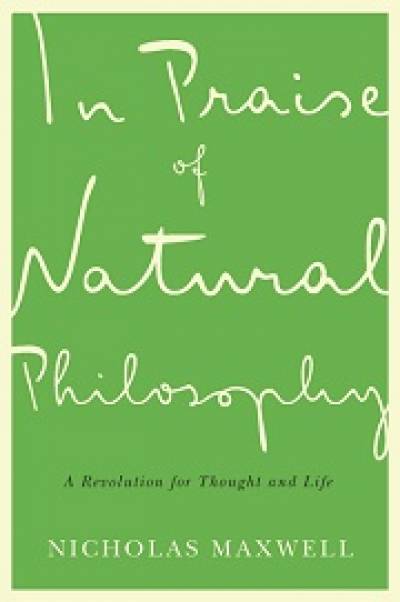
- "This is an ambitious, wide-ranging, and visionary book." Michael Krausz, Bryn Mawr College
- "In Praise of Natural Philosophy is well researched and systematically demonstrates the historical mistakes scholars made over time that artificially divided knowledge into two entities-science and philosophy. Maxwell's solution is a fully developed model called "aim-oriented empiricism," which offers a complex range of assumptions that help improve both the methods of science and the academic enterprise. Recommended." CHOICE
- The central thesis of this book is that we need to reform philosophy and join it to science to recreate a modern version of natural philosophy; we need to do this in the interests of rigour, intellectual honesty, and so that science may serve the best interests of humanity. Modern science began as natural philosophy. In the time of Newton, what we call science and philosophy today - the disparate endeavours - formed one mutually interacting, integrated endeavour of natural philosophy: to improve our knowledge and understanding of the universe, and to improve our understanding of ourselves as a part of it. Profound discoveries were made, indeed one should say unprecedented discoveries. It was a time of quite astonishing intellectual excitement and achievement. And then natural philosophy died. It split into science on the one hand, and philosophy on the other. This happened during the 18th and 19th centuries, and the split is now built into our intellectual landscape. But the two fragments, science and philosophy, are defective shadows of the glorious unified endeavour of natural philosophy. Rigour, sheer intellectual good sense and decisive argument demand that we put the two together again, and rediscover the immense merits of the integrated enterprise of natural philosophy. This requires an intellectual revolution, with dramatic implications for how we understand our world, how we understand and do science, and how we understand and do philosophy. There are dramatic implications, too, for education. And it does not stop there. For, as I show in the final chapter, resurrected natural philosophy has dramatic, indeed revolutionary methodological implications for social science and the humanities, indeed for the whole academic enterprise. It means academic inquiry needs to be reorganized so that it comes to take, as its basic task, to seek and promote wisdom by rational means, wisdom being the capacity to realize what is of value in life, for oneself and others, thus including knowledge, technological know-how and understanding, but much else besides. The outcome is institutions of learning rationally designed and devoted to helping us tackle our immense global problems in increasingly cooperatively rational ways, thus helping us make progress towards a good world - or at least as good a world as possible.
- Karl Popper, Science and Enlightenment, UCL Press, September 2017. Paperback, ebook, and can be downloaded free from UCL website.
- Science and Enlightenment: Two Great Problems of Learning, 2019, Springer, Cham, Switzerland.
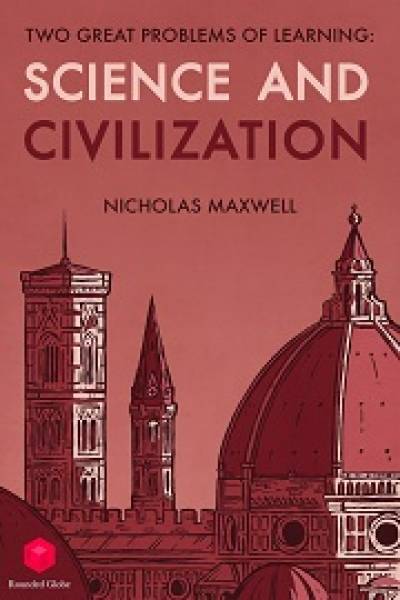
- Two great problems of learning confront humanity: learning about the nature of the universe and about ourselves and other living things as a part of the universe, and learning how to become civilized. The first problem was solved, in essence, in the 17th century, with the creation of modern science. But the second problem has not yet been solved. Solving the first problem without also solving the second puts us in a situation of great danger. All our current global problems have arisen as a result. What we need to do, in response to this unprecedented crisis, is learn from our solution to the first problem how to solve the second. This was the basic idea of the 18th century Enlightenment. Unfortunately, in carrying out this programme, the Enlightenment made three blunders, and it is this defective version of the Enlightenment programme, inherited from the past, that is still built into the institutional/intellectual structure of academic inquiry in the 21st century. In order to solve the second great problem of learning we need to correct the three blunders of the traditional Enlightenment. This involves changing the nature of social inquiry, so that social science becomes social methodology or social philosophy, concerned to help us build into social life the progress-achieving methods of aim-oriented rationality, arrived at by generalizing the progress-achieving methods of science. It also involves, more generally, bringing about a revolution in the nature of academic inquiry as a whole, so that it takes up its proper task of helping humanity learn how to become wiser by increasingly cooperatively rational means. The scientific task of improving knowledge and understanding of nature becomes a part of the broader task of improving global wisdom. The outcome would be what we so urgently need: a kind of inquiry rationally designed and devoted to helping us make progress towards a genuinely civilized world. We would succeed in doing what the Enlightenment tried but failed to do: learn from scientific progress how to go about making social progress towards as good a world as possible.
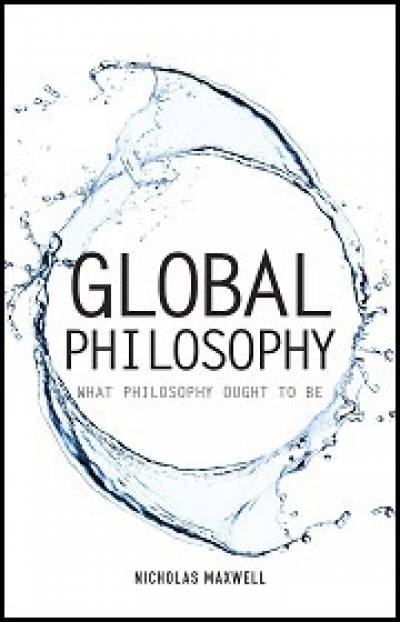
- Imprint Academic, October 2014.This book is about education, learning, rational inquiry, philosophy, science studies, problem solving, academic inquiry, global problems, wisdom and, above all, the urgent need for an academic revolution. Despite this range and diversity of topics, there is a common underlying theme. Education ought to be devoted, much more than it is, to the exploration real-life, open problems; it ought not to be restricted to learning up solutions to already solved problems - especially if nothing is said about the problems that provoked the solutions in the first place. A central task of philosophy ought to be to keep alive awareness of our unsolved fundamental problems - especially our most fundamental problem of all, encompassing all others: How can our human world - and the world of sentient life more generally - imbued with the experiential, consciousness, free will, meaning and value, exist and best flourish embedded as it is in the physical universe? This is both our fundamental intellectual problem and our fundamental problem of living. The essays in this volume seek to provoke a concerted effort to transform our institutions of learning so that they become rationally and effectively devoted to helping us learn how to create a wiser world.
- How Universities Can Help Create a Wiser World: The Urgent Need for an Academic Revolution, Imprint Academic, January 2014.
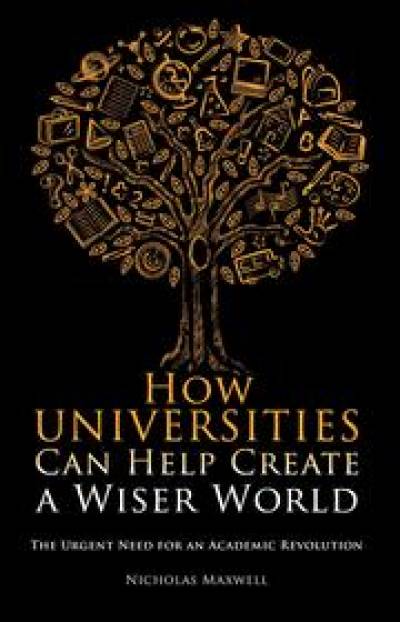
- In this book I argue that, in order to create a wiser world, it is essential that we bring about a revolution in universities around the world so that they become rationally devoted to helping us solve problems of living, above all our grave global problems.
| Four Endoursements that Appear on the Back Cover of the Book |
| Thirty years ago, Nicholas Maxwell first argued that our universities must be rationally designed and devoted to helping us learn how to solve our problems of living. In the intervening years it has become more, not less, urgent that we take up his challenge. Julian Baggini, editor-in-chief The Philosophers' Magazine |
| This book begins by acknowledging that today most people lead longer and healthier lives than previous generations, primarily as a result of "knowledge-inquiry", mainly in universities. Perversely, the result is ever-expanding populations, pressing against the limits to growth on a finite planet. Maxwell gives a good case for addressing these problems by universities putting much greater emphasis on "wisdom-inquiry". It is a timely and interesting idea. I think the book deserves a wide readership. Professor Lord Robert May, Oxford University |
| Which ideal matters more to us, knowledge or wisdom? Nicholas Maxwell has long fought staunchly for wisdom in this debate, and in this book he once more points out shrewdly how much our universities need to learn this lesson. It's to be hoped that this time they are listening! Mary Midgley, Philosopher |
| Nicholas Maxwell argues that in order to address the problems of global society, we must transform our universities. At UCL we fully agree and we have already made such changes central to our 2011 Research Strategy "Delivering a Culture of Wisdom". Our UCL Grand Challenges programme, which has so far involved more than 250 academics, is putting these ideas into practice. David Price, Vice-Provost of Research, University College London |
- An account of the UCL launch of the book, including comments by Alan Sokal and Philip Ball
Extracts from Reviews
- It is ... heartening to see [Maxwell's] work being taken more seriously in recent years... The message of Maxwell's How Universities can Help Create a Wiser World is both urgent and wise ... Maxwell is to be praised for putting the task of seeking 'wisdom' on the agenda of universities again. As an introduction to Maxwell's project, and as an inspiring vision of a higher education worth fighting for in our era increasingly beset by marketization, Maxwell's book is a breath of fresh air. While the book is aimed at university staff and policy-makers ... [it] could usefully be read by anyone interested in the future of higher education. Jonathan Coope, Metapsychology, 17 June, vol. 18, issue 25, 2014
- [Maxwell] is an interesting, metaphysically minded, serious thinker in philosophy of science whose analysis of this wonderful achievement of the human mind is masterful ... It is high time to start taking Nicholas Maxwell seriously, not just as a regular philosopher of science developing the ideas of Karl Popper but first and foremost as an academic revolutionary in the best sense of the word who cares deeply about the future of the whole mankind. Rationality, constantly aimed at acknowledging and solving problems is the most important capacity our species possesses. We have to make proper use of it. Nicholas Maxwell is able to tell us how to get started. Peeter Müürsepp, Dialogue and Universalism, 2014, no. 2, p. 247
Cutting God in Half - And Putting the Pieces Together Again: A New Approach to Philosophy. Pentire Press, March 2010. Tackles our fundamental problem: How can our human world, imbued with perceptual qualities, inner experiences, consciousness, free will, meaning and value, exist and best flourish embedded as it is in the physical universe? | 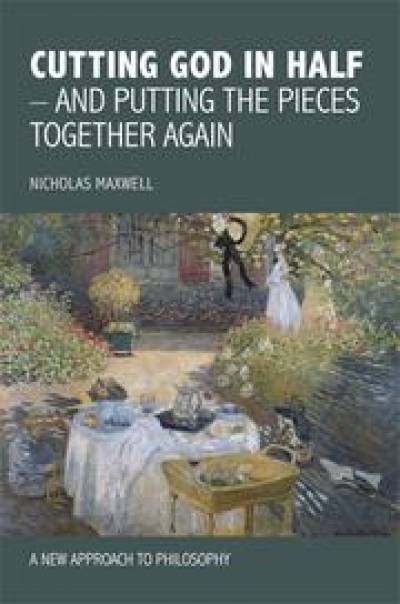 |
| What's Wrong With Science? Towards a People's Rational Science of Delight and Compassion, Pentire Press, 2nd ed., September 2009. This second edition has a new Preface explaining how the book both exploits and develops Karl Popper's philosophy. | 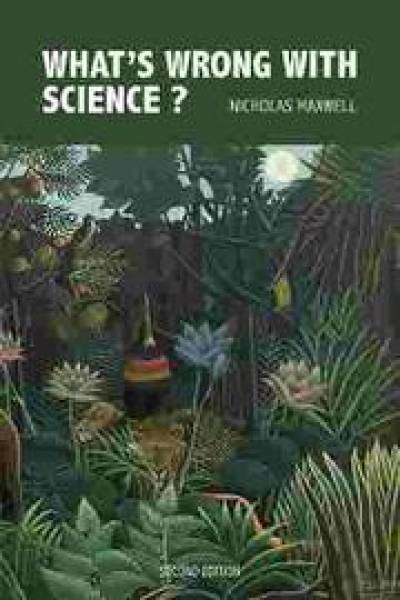 |
| From Knowledge to Wisdom: A Revolution for Science and the Humanities, Pentire Press, 2nd edition, 2007. New material, a new introduction and three new chapters. | 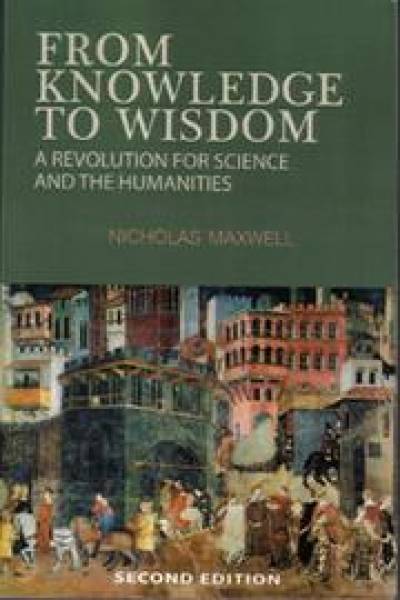 |
| Is Science Neurotic?, Imperial College Press, London, December 2004. | 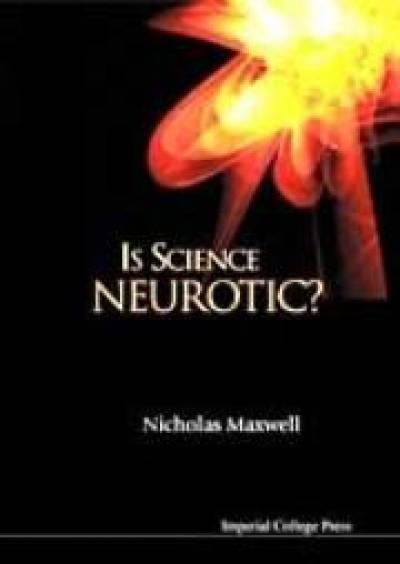 |
| The Human World in the Physical Universe: Consciousness, Free Will and Evolution, Rowman and Littlefield, Lanham, Maryland, 2001. | 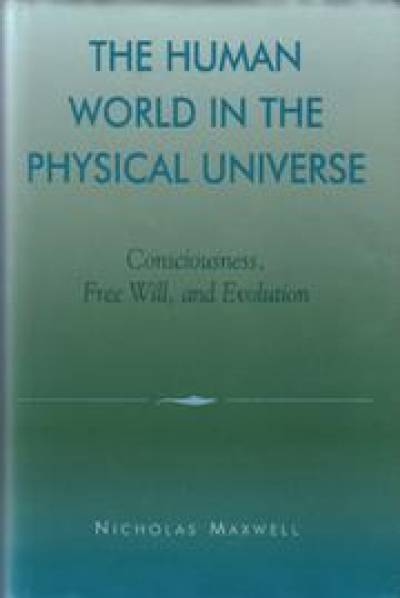 |
| The Comprehensibility of the Universe: A New Conception of Science, Oxford University Press, Oxford, 1998, pp i-xv + 316, paperback edition, 2003. Available online: click here. | 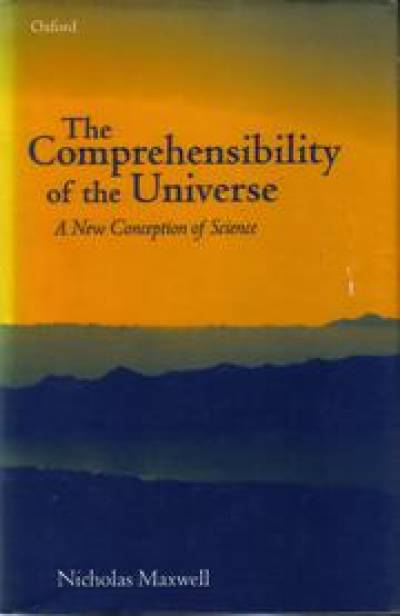 |
| From Knowledge to Wisdom: A Revolution in the Aims and Methods of Science, Basil Blackwell, Oxford, 1984, pp. viii + 299, paperback editions, 1987, 1988. |  |
| What's Wrong With Science? Towards a People's Rational Science of Delight and Compassion, Bran's Head Books, Frome, England, 1976, pp. xi + 260. |  |
- R. Barnett and N. Maxwell, eds., Wisdom in the University, Routledge, 2008, pbk. 2009. Includes my "From Knowledge to Wisdom: The Need for an Academic Revolution".
- Leemon McHenry, ed., Science and the Pursuit of Wisdom: Studies in the Philosophy of Nicholas Maxwell, Ontos Verlag, February 2009. Contains two chapters by me, How Can Life of Value Best Flourish in the Real World? and Replies and Reflections, and twelve chapters discussing my work by various authors.
 Close
Close

